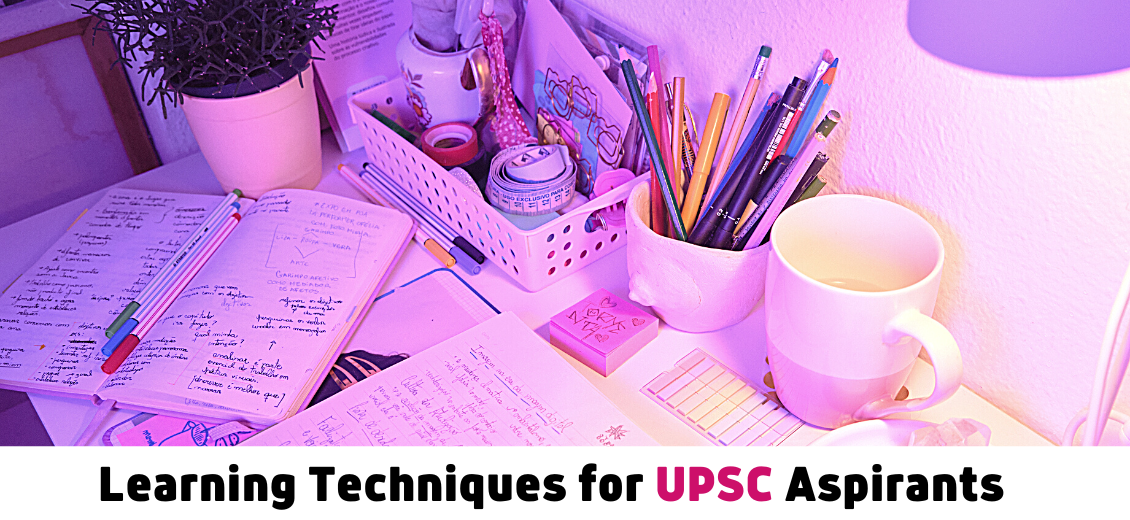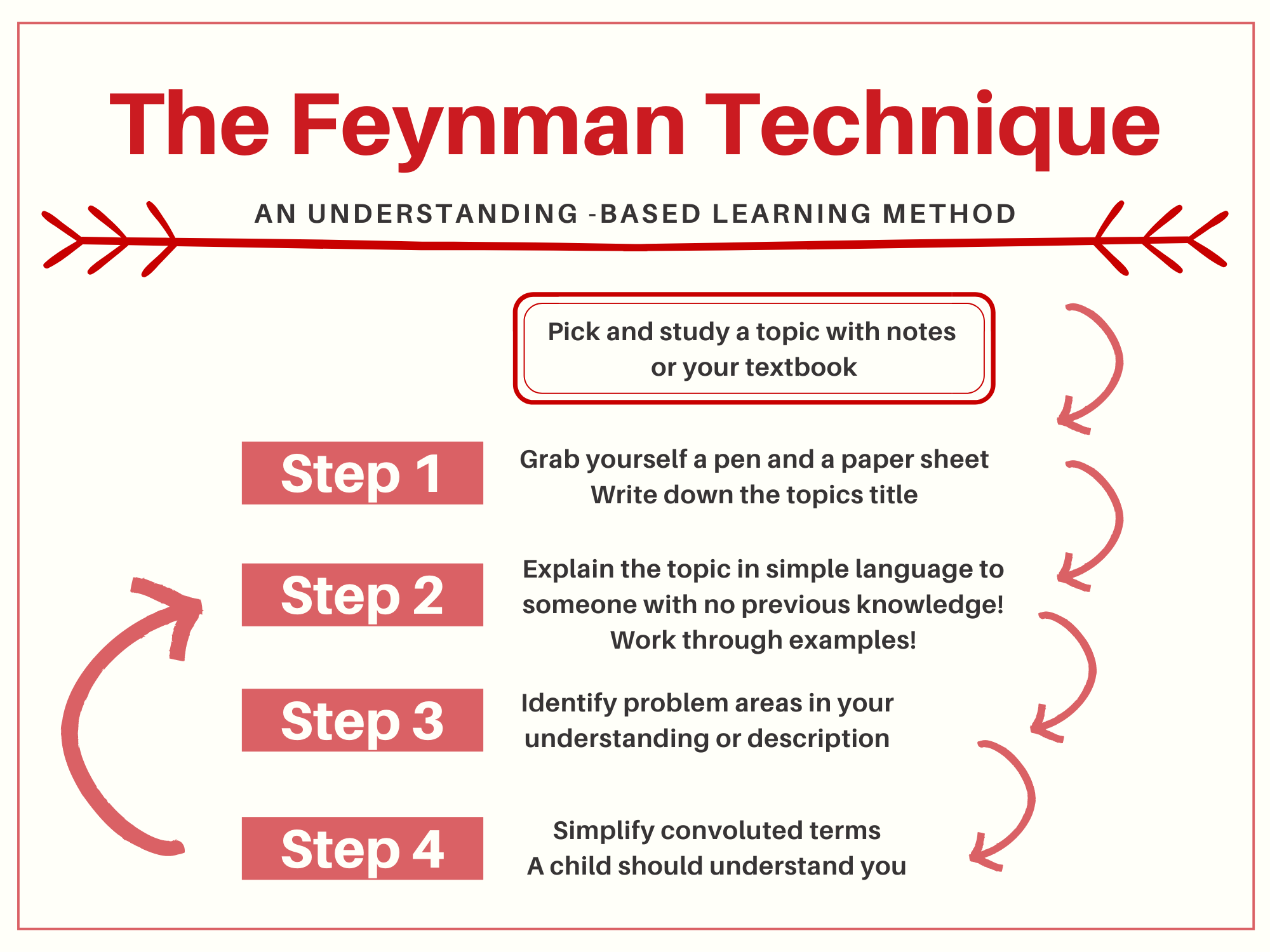Learning Techniques For UPSC Aspirants
Blogs Home
- 15 Jun 2022

We all know the struggle of finishing just one more chapter right before the exam. But that pressure can be hard to deal with if we don't know how to study right. Studying is an art. Some students are able to do it quickly, while many take days. This is because they have figured out a way that works for them while others don’t know how to go about it. If you belong to the former category, don’t fret. We are here to help you out.
With UPSC Mains ‘22 just a few months away, we understand the pressure that builds up. We will make sure you don’t succumb to it. Here are some excellent learning techniques which will definitely help you study in a quicker and better way.
Combine words and visuals
Learning anything is easier if it is represented to us in a visual format. It gets easier when a chart, a graph image, or some kind of visual is already present with the information.
While reading text, the students must try to interlink it with visuals in some manner so that they can have more ways to remember it. It will allow the student to recall the information in any of the two methods- text and visuals.
And visuals can be anything. It can be the colour of pen you use to highlight the particular topic, a spot where you choose to sit and study that particular topic or just any picture in your brain that helps you recall the material. This method is very effective and is definitely going to help.
Switch between ideas while you study
You must have a habit of reading a paragraph 10 times over and over again until it gets in your head. It is a common misconception that to study anything; we must read it multiple times.
However, research says that we must switch the topics and learn them simultaneously to memorize something effectively.
For example, if you are studying math, you will probably try to solve five problems on one topic, say, ‘Find the area of a triangle.’ Instead of doing that, we suggest solving different problems and in different orders. If you find an area of a triangle, next find the area of a circle, then square, then come back to the triangle again.
This will make you think more, and as a result, it will be hard. But at the same time, it will train you more in less time.
There is a good chance that initially you will make many mistakes and will have lots of errors but do not get frustrated. This is a part of the strategy and will help exercise your brain to think critically rather than repetitively.
Practice recalling without the help of materials
You must have thought that studying means going through your notes again and again. But the fact is, you can't really tell if you still remember it.
Keeping notes in front of you is probably tricking you into thinking that you do remember them. Where in fact, you might not. You can only know this once you shut the book and try to recall it without any studying materials in front of you.
If you cannot put it into your words, try creating visuals or drawing something that relates to it. Try to explain the concept to yourself or pretend that you are doing it with a friend.
If you can do this, you change the way that information is stored in your brain. Initially, it was told because you read in the book, but now it is told because you can explain it in your words, which is more effective.
You have to test yourself if you have really memorized it or not- that's the trick of memorizing it even more.
Space out your studying over time
Learning is awesome, but relearning is the key to solving all your problems. Often, students wait until the night before the exam to study it in one go and, surprisingly, do well on the test.
But what's even more surprising is that they forget, a few days after the test, whatever they had learned. This is because they did not memorize it in a way that it will last long in their brains.
Studying one night before a test may do the trick temporarily, but it's not going to stay with you for a long time.
If you want to ensure a way to memorize something for a test that's far ahead in the future, relearning is the way to go. You need to study in small bits instead of everything at once.
Whenever you study a page and then do some other activities before you jump to the next page, you give yourself a chance to forget what you just learned.
Forgetting actually helps strengthen your memory more because it won't be a new topic to you when you relearn it. It will be familiar to you, which will make it easier to remember it this time.
So, if you have an exam on edge like CUET, make sure you study with this relearning technique. Make a calendar and add the topics you have to study but in small bits.
Bonus Tip: The Feynman Technique
This is quite a popular technique and everyone has been using it for studies. The best way to learn anything is to teach it.
When you try to explain a concept, you find out exactly what you remember and what bothers you. You will also figure out if you have a complete understanding of the concept or if there are still some places where you get stuck. This is the Feynman Technique.
This tip will help you dramatically wherever you study a new concept. The secret to ensuring that you understand something is to explain it to yourself. If you are able to do that, you will surely memorize it faster.
Conclusion
So whenever you prepare for any competitive exam like UPSC, make sure you make the best use of these steps and implement them in your schedule. These will help you learn more in less time, which will keep your studying routine in place!
Poonam Sharma







